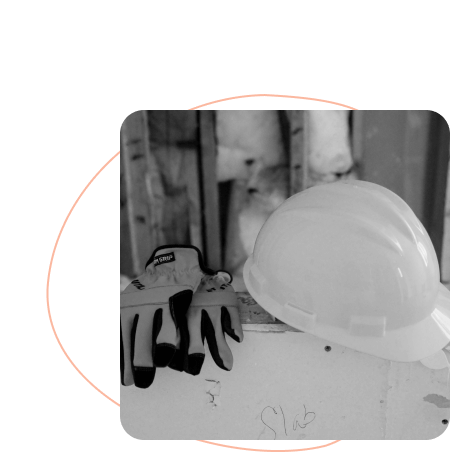
In construction, gaining clear data visibility can be a game-changer, allowing firms to manage projects more efficiently, foresee potential issues, and ultimately drive growth. However, many construction companies still struggle to extract actionable insights from their data. Let’s explore five effective tactics to enhance data visibility, streamline operations, and enable more strategic decision-making across your construction projects.
1. Centralize Project Data in a Single ERP Platform
Managing project data across various systems can lead to information silos and confusion. By using an all-in-one ERP system designed for the construction industry, you can centralize key data on project timelines, budgets, employee productivity, and resource allocation. Acumatica’s cloud-based ERP seamlessly integrates data from different areas, making it accessible to everyone involved in a project. Centralized data helps streamline reporting, provides a clear overview of project status, and reduces the need for manual data consolidation.
Impact: Centralizing data enables quicker, more informed decisions, enhances communication between departments, and ensures that everyone has access to the latest information, reducing errors and rework.
2. Implement Real-Time Reporting and Dashboards
Real-time dashboards offer a clear window into key performance indicators (KPIs), project progress, financial health, and more. With construction ERP solutions like Acumatica, you can customize dashboards to display the most relevant data for your business. Whether it’s tracking project budgets, site performance, or equipment utilization, real-time data lets you address issues as they arise rather than waiting until the project’s end.
Benefits of Real-Time Data Visibility:
- Early Problem Detection: Identify cost overruns or delays early on.
- Faster Response Times: Take immediate action based on live data.
- Enhanced Forecasting: Use up-to-date data to adjust future projections and resource needs.
Impact: Real-time visibility into your operations helps construction managers stay agile, prevent budget creep, and keep projects on schedule.
3. Use Advanced Analytics for Predictive Insights
Going beyond static reporting, advanced analytics empower construction companies to predict future outcomes based on historical data. Predictive analytics can be used to anticipate delays, equipment maintenance needs, or potential safety risks on job sites. With a robust ERP system, construction firms can analyze trends in resource usage, labor costs, and seasonal project demands, giving project managers a proactive advantage.
Example Applications:
- Forecasting Labor Needs: Predict workforce requirements to avoid shortages.
- Equipment Maintenance Planning: Anticipate when machinery will need servicing.
- Risk Management: Identify areas with high-risk profiles to allocate resources accordingly.
Impact: Predictive insights support better resource allocation, minimize disruptions, and help firms anticipate challenges before they become costly issues.
4. Automate Financial Reporting and Compliance Tracking
For construction firms, maintaining accurate financial records and ensuring compliance with regulations can be challenging, especially when using manual or outdated processes. By automating financial reporting within an ERP for construction companies, users gain real-time access to accounts receivable, payables, job costing, and revenue recognition. Additionally, built-in compliance tracking tools can simplify the process of meeting local and federal regulations.
Why Automation Matters:
- Reduce Errors: Automated calculations decrease the risk of costly mistakes.
- Improve Efficiency: Cut down on time spent manually tracking financials and compliance metrics.
- Ensure Transparency: Real-time visibility into financials fosters transparency and improves trust among stakeholders.
Impact: Automation enables construction firms to streamline financial tasks, avoid compliance issues, and maintain transparent records for stakeholders.
5. Enhance Collaboration with Mobile Access
For construction teams, on-the-go access to data is crucial. Mobile ERP access allows field and office teams to stay connected, update project information in real time, and quickly communicate about changes or issues. With Acumatica’s mobile-friendly platform, team members can upload site photos, update task statuses, and log expenses from anywhere, improving both speed and accuracy in reporting.
Benefits of Mobile ERP:
- Instant Updates: Field workers can input data directly from the job site.
- Greater Accountability: All teams have up-to-date information, reducing miscommunication.
- Enhanced Flexibility: Access data, check budgets, and track progress from any device.
Impact: Mobile ERP capabilities reduce time lags between job sites and the main office, supporting a more flexible, responsive, and collaborative work environment.
Final Thoughts: Putting Data Visibility at the Core of Your Business
Achieving true data visibility in construction isn’t just about gathering data—it’s about making it usable, accessible, and actionable. With Acumatica’s construction ERP, companies can gain comprehensive visibility across projects, finance, compliance, and resources, equipping teams to manage their projects with greater accuracy and foresight.
Ready to boost data visibility in your construction projects? Contact The Answer Company to learn how Acumatica’s construction ERP solution can transform your operations.
Related Resources


The Growing Need for Modular Construction Software
Read the Article
